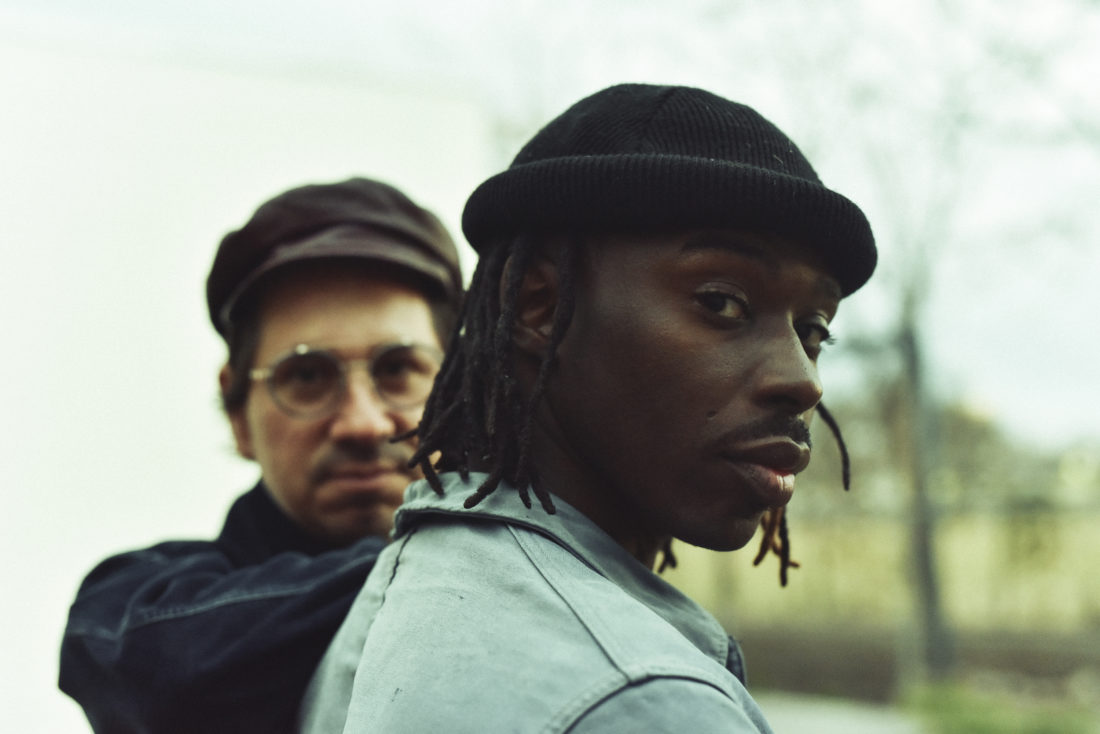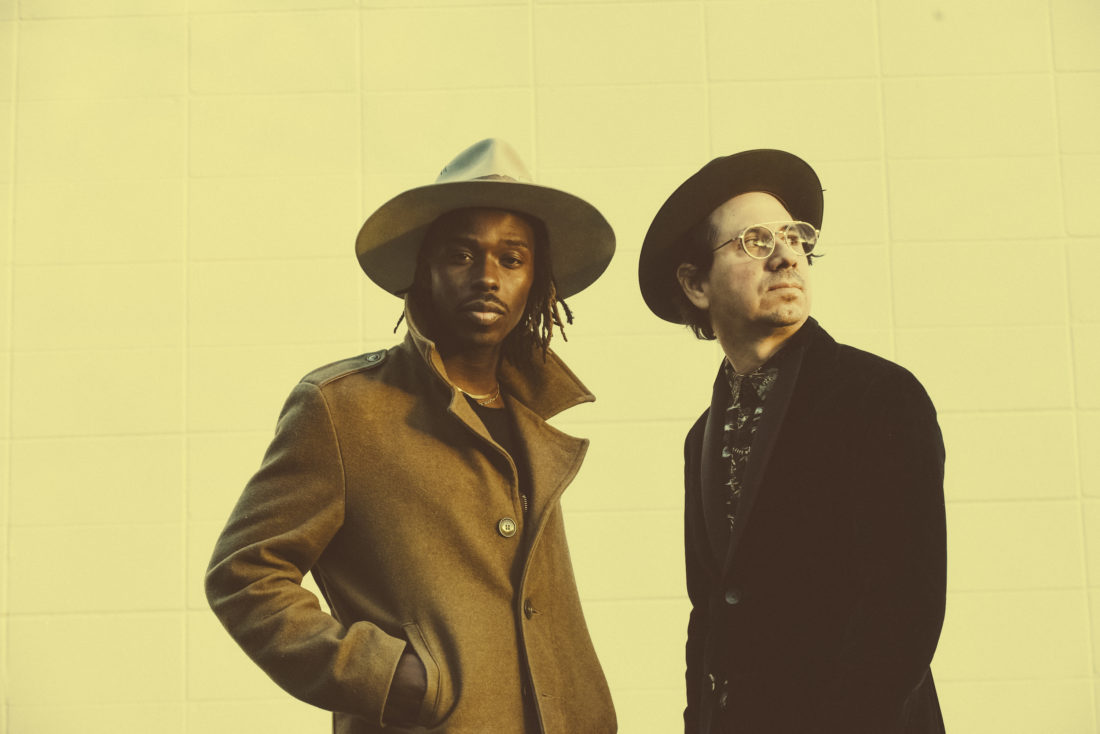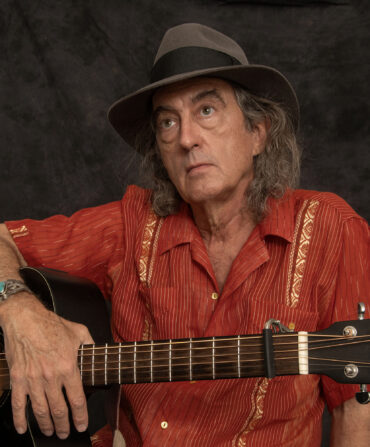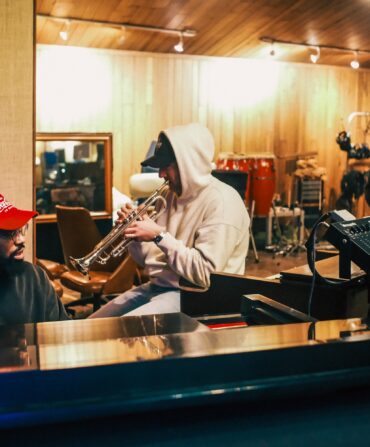Even if you don’t know Black Pumas by name, you’ve probably heard “Colors,” the Austin band’s now nearly ubiquitous hit single. “My friends call me and tell me all the time, ‘I can’t get away from you, dude. I can’t even go grocery shopping,’” says singer Eric Burton with a laugh.
Burton wrote the song on his uncle’s rooftop overlooking Alamogordo, New Mexico, years before he ever recorded it. The dynamic frontman went on to busk on street corners up and down the West Coast before ultimately landing in Austin and hooking up with bandmate Adrian Quesada to form Black Pumas in 2017.
While “Colors” put the duo on the map, their inventive takes on such numbers as Tracy Chapman’s “Fast Car” or the Beatles’ “Eleanor Rigby” have offered new fans an alternate introduction to the band’s unique sound. Burton’s vocals feel at once familiar and futuristic: He says he was influenced from an early age by greats like Nat King Cole and Frank Sinatra, but you’re just as likely to hear trippy sound effects and distortion as you are soaring high notes. And Quesada’s dexterity on the guitar lends an almost jam-band-like feel to many of the tracks, which beg for a live audience—even if, right now, the pair has had to settle for livestreams and late-night appearances.
After landing a Grammy nomination for Best New Artist last year, the duo gained even wider exposure with their performance during the inauguration festivities in January, and at this year’s Grammys on March 14, they’re up for three more nominations—including record of the year and album of the year.
G&G caught up with the duo about their musical beginnings, what they love about Austin, and the humbling evolution of “Colors.”
You both came to Austin from other places. Adrian, you’re from nearby Laredo, and Eric, you grew up in Los Angeles. How did the music community in Austin impact your development as a band?
Burton: There’s definitely a level of receptivity to the arts in this town. I was used to being in a bigger, more saturated city for music and business—there are a lot of dream shakers in Los Angeles. When I got to Austin, the level of care and receptivity was palpable. I didn’t even have to say anything to anyone, outside of dragging my bag with my tip jar in it and taking my guitar out and playing on the corner of Sixth and Congress. It was perfect for where I was at that time.
Quesada: I’ve lived in Texas all my life. I came to Austin for college and stayed. What’s different about it, compared to a lot of the major music cities, is what Eric was saying: There’s more of a sense of community here. Everybody’s in a band and everybody supports each other. There are other cities where there’s so much music industry that it feels like you’re playing from a suitcase to the suits. Here, you’re playing to people that are there to rock out, and when you’re at the show, a million of your friends are there, and they’re all in bands, too. It has a real sense of community that I think is unique.
What were your first experiences with music?
Quesada: I grew up an only child. My parents were working a lot, so I was left to my own devices—always entertaining myself. I got my music education by watching MTV. I remember being 13 and really, really into music and my dad pushing me to take piano lessons. I was a skater and was like, “Oh man, piano’s dorky. I don’t want to play piano,” which is one of the few regrets I have in life. But I said, “I can do guitar.” One of my uncles bought me a guitar and all my family chipped in—gave me a little amp, a little speaker. I started taking lessons, and that was my introduction. Even then, I was already starting to jam with people. That led me down the road.
Burton: I’ve just always been around it. I come from a family led by a matriarch, my grandmother, who was a missionary in Africa for an extended time with my uncle and my mom, the two people who raised me. They were a musical family, and when they got back to the States, they traveled up the East Coast to improve the music programs in different churches. I was introduced to the classics like Nat King Cole and Frank Sinatra. I watched Gene Kelly and all of these theatrical giants, and I did a little bit of singing in church. I led praise and worship at a Presbyterian church and did a little bit of busking in L.A. I found a couple of guys who were into wanting to build a band, wanting to play, wanting to record. We went on a busking trip from Los Angeles to Seattle and later back down to Austin.

Eric, you spent a lot of time busking, and Adrian, you’d played guitar and produced albums with bands of all sizes for decades before linking up with Eric. What did you each learn from those experiences that have helped you with Black Pumas?
Burton: When you’re out in the elements around a bunch of tourists…I learned very fast that it’s got to come from my soul. At the end of the day, it doesn’t matter how much money I’m making or if someone acknowledges me or not. It’s always been most fulfilling to treat it like a spiritual practice—just singing to feel like my highest self. That aspect has not changed.
Quesada: In my formative years, I was in a ten-piece band, so I learned how to be a part of the whole. The instruments should be having a dialogue rather than all talking over each other. I think of it like that, like a conversation: Everybody will get a chance to talk, at some point, but you’re also supposed to be leaving space for the others to have their moment. That’s something that very much came from performing Latin music and that I still, to this day, really want to come through.
Eric, you wrote “Colors” years before the two of you recorded and released the song. Has its meaning evolved to you?
Burton: Definitely. I started playing music because I wasn’t necessarily getting what I felt like I needed just by listening to the radio or by playing the hymns that I would play in church. I was in a space of self-discovery—becoming a man, learning how to play guitar. My uncle, who raised me, is an amazing songwriter. We would play melody games and do things that would encourage creating music. When I finally completed “Colors,” I thought, “This sounds like a hymn—but from me, from Eric Burton.” The song represents the pursuit of my inner truth, my higher self.
Quesada: It means different things for different people, but I think ultimately it inspires and uplifts in the way that Eric intended to uplift himself. A good song is timeless: It transcends boundaries and really can mean a lot of different things to different people.
Burton: It’s been absolutely amazing to come to terms with letting it go. I was in a place of growth, and I grew. We recorded it, and now it’s out there. It’s not really mine anymore.








